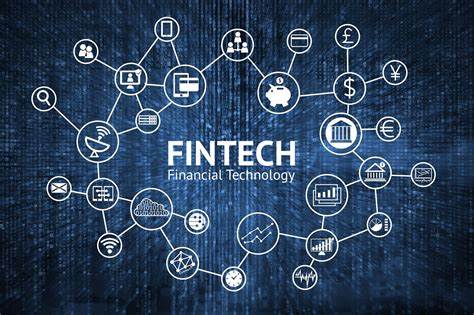Fintech Revolution: Transforming Financial Services for 2024
Financial Technology, commonly known as Fintech, is transforming the financial industry by leveraging technology to create innovative solutions for financial services. From mobile banking to blockchain, Fintech is making financial services more accessible, efficient, and user-friendly. In this blog, we will explore what Fintech is, its key components, and how it is revolutionizing the financial industry.

What is Fintech? Fintech refers to the integration of technology into offerings by financial services companies to improve their use and delivery to consumers. It encompasses a broad range of applications, including mobile payments, online banking, cryptocurrency, and more.
Key Components of Fintech
- Digital Payments: Mobile payment apps like PayPal, Venmo, and Apple Pay have made it easier for consumers to send and receive money, pay bills, and shop online.
- Blockchain and Cryptocurrency: Blockchain technology provides a secure and transparent way to record transactions. Cryptocurrencies like Bitcoin and Ethereum are gaining traction as alternative forms of currency.
- Robo-Advisors: These automated platforms provide financial advice and portfolio management with minimal human intervention, making investing accessible to a broader audience.
- Peer-to-Peer Lending: Platforms like LendingClub and Prosper connect borrowers with investors, offering an alternative to traditional bank loans.
- Insurtech: This subset of Fintech focuses on innovations in the insurance industry, from automated claims processing to personalized insurance plans.
How Fintech is Revolutionizing the Financial Industry
- Increased Accessibility: Fintech solutions are making financial services more accessible, particularly for underserved populations. Mobile banking apps enable people in remote areas to access banking services without visiting a physical branch.
- Enhanced Efficiency: Automation and digitalization streamline processes, reducing the time and cost associated with traditional financial services. For example, robo-advisors offer quick and cost-effective investment management.
- Improved User Experience: Fintech companies prioritize user experience, offering intuitive and user-friendly platforms. Mobile payment apps, for example, simplify the process of transferring money and making payments.
- Greater Transparency and Security: Blockchain technology enhances transparency and security by providing a decentralized and tamper-proof record of transactions. This is particularly beneficial in areas like cross-border payments and supply chain finance.
- Financial Inclusion: By providing affordable and accessible financial services, Fintech is promoting financial inclusion. Digital wallets and mobile banking are empowering individuals who previously lacked access to traditional banking services.
Challenges and Considerations: While Fintech offers numerous benefits, it also comes with challenges and considerations.
- Regulation: The rapid pace of innovation in Fintech often outpaces regulatory frameworks. Ensuring compliance with regulations while fostering innovation is a key challenge.
- Security Risks: The digital nature of Fintech makes it susceptible to cybersecurity threats. Protecting sensitive financial information is paramount.
- Digital Divide: Access to Fintech solutions requires internet connectivity and digital literacy. Bridging the digital divide is essential to ensure that Fintech benefits all segments of society.
Future of Fintech
The future of Fintech is bright, with continuous advancements expected to further transform the financial landscape. Here are some trends to watch out for:
- Artificial Intelligence and Machine Learning: AI and ML are expected to play a significant role in Fintech. From fraud detection to personalized financial advice, these technologies will enhance the capabilities of Fintech applications.
- Open Banking: Open banking initiatives are promoting data sharing among financial institutions, leading to more personalized and competitive financial services. This will provide consumers with greater control over their financial data.
- Regtech: Regulatory technology, or Regtech, is emerging to help Fintech companies comply with regulations more efficiently. By automating compliance processes, Regtech reduces the risk of non-compliance and ensures adherence to regulatory standards.
- Fintech for Good: Socially responsible Fintech solutions are on the rise. These initiatives aim to address social and environmental challenges, promoting financial inclusion and sustainability.
- Biometric Security: As cybersecurity remains a top concern, biometric security measures such as facial recognition and fingerprint scanning are becoming more prevalent. These technologies enhance security and streamline user authentication.
Fintech is undeniably reshaping the financial industry by integrating technology into financial services. From digital payments to blockchain and AI, the innovations in Fintech are making financial services more accessible, efficient, and user-friendly. As we move forward, it is crucial to navigate the challenges, such as regulation and security risks, to ensure a secure and inclusive Fintech ecosystem.
By keeping an eye on emerging trends and advancements, businesses and consumers can leverage Fintech to enhance their financial operations and achieve greater financial inclusion. The revolution in the financial industry is just beginning, and Fintech is at the forefront of this transformative journey.

